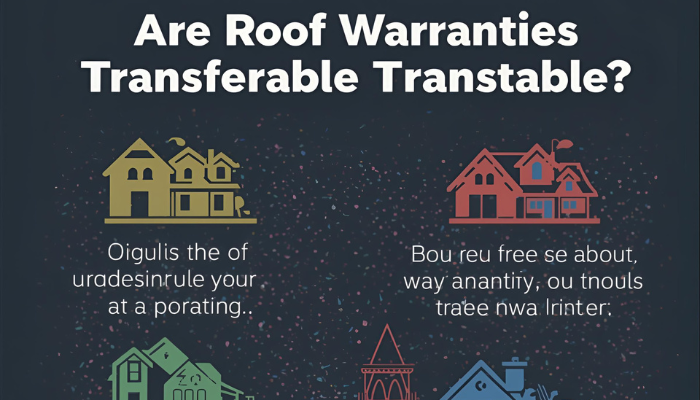When you are selling or buying a house, the question of “Are roof warranties transferable?” arises frequently, and rightly so. A transferable warranty may provide real value and confidence. However, the answer is not just yes or no; it depends on the warranty type, the rules of manufacturers or installers, and the fulfillment of conditions.
The Two Warranty Types and How Transfer Rules Differ
- Manufacturer (material) warranty:
warranties on shingles, tiles, membranes, or other roofing materials. - Workmanship (installer) warranty:
This is included in the cases of flashing, installation mistakes, leaks, and bad fastening, etc.
Are warranties on roofs transferable? Transferability of manufacturer warranties is standard, though they often must be registered, and sometimes a transfer fee is charged, and the transfer window is usually limited (such as within 30-60 days of purchase). The less automatic transmission of workmanship warranties is more contingent on the policy of the installer.
Trust our expert team for top-quality Commercial Roofing services!
What Types Are Transferable
| Warranty Type | Typically Transferable? | Typical Conditions |
| Manufacturer / Material | Often yes | Must register transfer, may charge a fee, may require inspection |
| Workmanship / Installer | Sometimes / Rarely | Depends on installer; may require agreement or new contract |
| Extended or prorated warranties | Varies | Could be limited or non-transferable |
Read more: What Is Roof Decking?
Common Conditions That Can Void a Transfer
Although a warranty is transferable, various things may prevent the transfer:
- Unregistered by the person doing the transfer.
- No transfer fee, which is paid to the manufacturer.
- Lack of maintenance records; numerous warranties demand the demonstration of regular servicing.
- Damage or roof changes that were sufficiently old to breach the warranty.
- Violation of the use of authorized materials or installers to perform repair work during the coverage period.
Read more: How to install rain gutter?
Practical steps to transfer a warranty
- Obtain a copy of the warranty early; the purchaser should demand it in due diligence.
- Conditions of check transfers (time constraints, charges, inspection).
- Have a roof inspection done to record the present condition; it aids in transfer and later claim.
- Acquire the manufacturer and installer and transfer them in writing.
- Record keeping: invoices, maintenance receipts, and inspection reports.
Final Thoughts
So, are roof warranties transferable? In some cases, particularly on manufacturer warranties, transferability involves meeting the conditions and policy. When you are buying or selling, you should never leave this to chance, and you should demand the warranty documents, transfer regulations, and get a professional roof check. At ONLY Roofing, we assist buyers and sellers in condition checking of the roof, maintenance of the paperwork, and ensuring the papers are properly archived to facilitate the transfer of warranties. Stop by to book an inspection or receive a professional assist with a warranty transfer!

